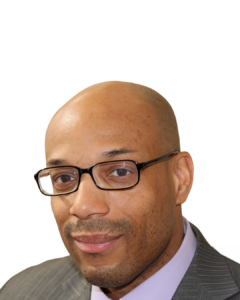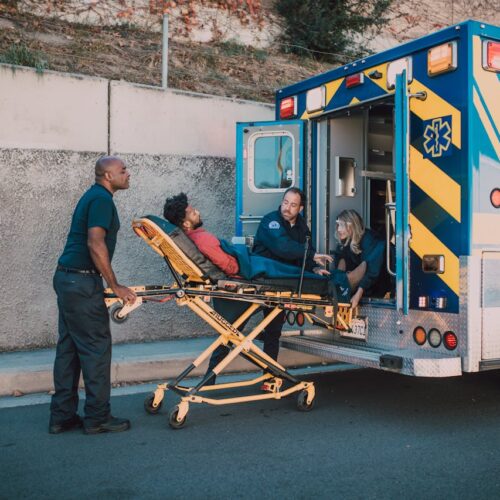
Removing Barriers to Successful Reentry: Q&A with New CSG Justice Center Advisory Board Member Dr. Ronald F. Day
Updated September 4, 2025
The CSG Justice Center Advisory Board establishes the policy and project priorities of the organization. The board features a cross-section of leaders who shape criminal justice policy in various parts of the country.
Dr. Ronald F. Day is passionate about reentry and addressing the stigma of incarceration. As the chief operating officer of The Fortune Society, he provides executive oversight to several departments that seek to change policies that create barriers to successful reintegration and conduct research to advance policy and practices that improve the safety of our communities. He also oversees the Admissions, Education & Employment Services, and Transitional Services departments, which deliver services to thousands of directly impacted people annually.
Editor’s note: Answers have been lightly edited for clarity.

Dr. Ronald F. Day
What inspired you to join the CSG Justice Center Advisory Board? What unique perspective do you feel you bring to the board?
The CSG Justice Center has a stellar reputation for using data-driven and evidence-based practices to help improve our criminal justice system. I was inspired to join the advisory board because I’m a person who experienced the system firsthand and witnessed the need for it to be transformed. That goes for the individuals entangled in the system, those who work in the system, and the families and communities who are impacted by the system. As a senior leader at The Fortune Society, a nationally recognized human service, policy, and research organization, I bring a perspective informed by my own experience and the thousands of people with similar experiences served by our organization each year. These perspectives help shape the services that The Fortune Society offers and inform the change to the system that we seek.
What was a defining moment that solidified your commitment to improving the criminal justice system?
A defining moment that solidified my commitment to improving the criminal justice system was my own experience with incarceration. As a formerly incarcerated individual, I personally faced the overwhelming barriers to reentry and the stigma that often accompanies it. While incarcerated, I witnessed the system’s deep flaws and the lasting impact it had on people, their families, and communities. It was then that I made a commitment to use my voice, my experience, and my work to advocate for changes that can break down these barriers and help people successfully reintegrate into society.
What do you see as the biggest challenges facing the criminal justice system today, and how can the CSG Justice Center help solve them?
A huge challenge is expanding the services that people need to heal and thrive in their families and communities. We know from evidence that the carrot is often more effective and less costly than the stick, but in too many instances, we maneuver as if the only tool we have is a stick. The CSG Justice Center advances evidence-based practices that support successful reentry without compromising public safety. That is a tried and tested way to solve some of the biggest challenges that we face.
What are some innovations happening in your state or field that you think could be successfully replicated across the country?
New York State has demonstrated that you can invest in alternatives to incarceration (ATI) and reentry services and significantly reduce crime and the jail and prison population at the same time. Thousands of lives are impacted through ATI and reentry initiatives, and millions of dollars are saved and reinvested in communities harmed by mass incarceration. In addition to ATI, peer navigation, supportive housing, and comprehensive workforce development and education programs, among others, can be successfully replicated across the country, but only if we are bold enough to think outside of the punishment paradigm.
Learn more about the CSG Justice Center’s Advisory Board and its five newest members.
Credits: Photo by Agung Pandit Wiguna via Pexels
About the author

In response to growing calls for police reform in New Jersey, particularly following the shootings of Najee Seabrooks…
Read More Three Things to Know About New Jersey’s Groundbreaking Community Response Legislation
Three Things to Know About New Jersey’s Groundbreaking Community Response Legislation
In response to growing calls for police reform in New Jersey, particularly…
Read More Apply Now: Join a Learning Community for Community and Crisis Response Teams to Improve Responses to Youth
Read More
Apply Now: Join a Learning Community for Community and Crisis Response Teams to Improve Responses to Youth
Read More
 Apply Now: Join a Learning Community Focused on Substance Use and Overdose Community Response Programs
Read More
Apply Now: Join a Learning Community Focused on Substance Use and Overdose Community Response Programs
Read More













